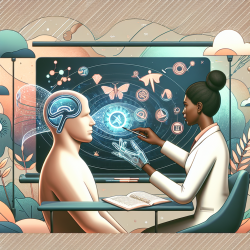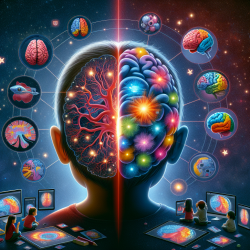Introduction
In the wake of the COVID-19 pandemic, the mental health of adolescents has become a pressing concern. With increased screen time and reduced physical activity due to lockdowns, understanding the impact of these changes is crucial for practitioners working with youth. The study titled The association of physical activity, sleep, and screen time with mental health in Canadian adolescents during the COVID-19 pandemic: A longitudinal isotemporal substitution analysis provides valuable insights into how these factors influence mental health outcomes.
Key Findings
The research analyzed data from a cohort of Canadian adolescents, examining the effects of physical activity, sleep, and screen time on mental health indicators such as depression, anxiety, and emotional dysregulation. The study found that:
- Increased physical activity and sleep were associated with lower depression scores and better subjective well-being.
- Minimizing screen time while increasing physical activity or sleep led to improved mental health outcomes.
- Year-on-year increases in screen time, coupled with decreases in physical activity or sleep, resulted in mental health declines.
Implications for Practitioners
As practitioners, understanding these findings can enhance your ability to support adolescents' mental health. Here are some actionable steps you can take:
- Promote Physical Activity: Encourage adolescents to engage in moderate-to-vigorous physical activity (MVPA) regularly. This can be through sports, dance, or even active video games that require movement.
- Emphasize the Importance of Sleep: Educate both adolescents and their parents about the benefits of adequate sleep for mental health. Encourage consistent sleep schedules and create environments conducive to restful sleep.
- Manage Screen Time: Work with adolescents to set realistic screen time limits and encourage breaks from screens. Suggest alternative activities that can replace screen time, such as outdoor play or creative hobbies.
Encouraging Further Research
While this study provides valuable insights, it also highlights the need for further research. Practitioners can contribute by:
- Participating in Longitudinal Studies: Engage in research initiatives that track changes over time to better understand the long-term effects of movement and screen time on mental health.
- Exploring Diverse Populations: Encourage studies that include diverse demographic groups to ensure findings are applicable across different communities.
- Investigating Screen Time Content: Differentiate between types of screen time (e.g., educational vs. recreational) to better understand their distinct impacts on mental health.
Conclusion
The study underscores the importance of balanced movement behaviors and screen time management for adolescent mental health. As practitioners, implementing these findings can enhance your practice and support the well-being of the youth you serve.
To read the original research paper, please follow this link: The association of physical activity, sleep, and screen time with mental health in Canadian adolescents during the COVID-19 pandemic: A longitudinal isotemporal substitution analysis.










